|
I’ll be honest, kind of wary of these female driven suspense thrillers lately. There are just too many of them out there right now, trying to out convolute each other. Often too preoccupied with stunning the readers with the prerequisite plots twists to do the actual work of writing instead. Which is all to say that the best thing about this book, the thing that makes it stand out in the sea of same and similar, is precisely that, the author did the work and created two female characters (some things like split perspectives are unavoidable) so engaging and likeable that their respective journeys up to and post the fated last flight are actually compelling enough to sustain the plot entirely. I’m almost surprised at how much I liked this book because it has several elements I might normally stay away from…it’s very much a #MeToo timed story and it’s more or less women’s fiction in a way. All of the main character, actually all of the good characters are women, women support each other, help each other out and defy the men who all seem determine to abuse, oppress, use, control, manipulate, terrify and/or flat out kill them. It’s pretty black and white that way, not a lot of grey territory and that’s sad in a way, because strict moral rigidity tends to take away from good complex storytelling. And yet…Claire and Eva manage to do it, survive their personal tragic stories and rise above (and no, that isn’t a tasteless pun on the premise). So ok, let’s address the premise…it’s fairly straight forward in that strangers on a train sort of way, two women desperately trying to get out of the frying pans their lives have become just into the potential fire of exchanging lives and ways out. Claire, getting out of her abusive marriage to a wealthy political scion, gets on a plane to California and Eva, fleeing her past as a dealer, gets to go off the mainland. And then the plane Claire was supposed to be on, the one Eva got on instead, does a Boeing Max 737. And suddenly all the plans go right out of the window. Ok, sorry, the terrible puns are here to stay, it seems. So anyway, the novel comprises dual perspectives, so that you get to know Claire in the after and Eva in the before. It’s all fairly standard suspense thriller business with every chance of being tedious and yet…Claire and Eva manage to come alive, in all their flawed beauty. They are smart, tough, self sufficient, they don’t whine, they make efforts and plans, they strive to improve their lot, they avoid becoming clichés. They are both victimized by men in their lives, but they don’t come across as victims, which is a pretty important distinction. These ladies are decidedly not chick lit material. There are no cheesy romances, no gay best friends, no bffs to get drunk with while doing each others’ nails. It’s women’s fiction at its best. And there’s also a great deal of suspense throughout, the pages are taut with it, the author did a really great job of dramatizing that edge of your seat quality you don’t often find well done in a thriller. There isn’t much mystery as such and what is of it is fairly easy to figure out, so don’t read it for that alone. It’s much more of a character driven suspense thriller. So yeah, Last Flight is just too good of a book to get weighed down by its heavy handed message. Go figure. I enjoyed this one, very entertaining and plenty well written. Recommended. Thanks Netgalley.
0 Comments
Once upon a time the world was round and you could go on it around and around * and then it became something different entirely. A universe all too contained and suddenly coming undone. And in it a young woman contracted as a maid, fleeing a double suicide of her employers tries to find her way to something like safety or maybe just solace.
Myrra is twenty five and she has been under a labor contact for most of her life, a fifty year contract that can be bought and sold, like so many of her social class. Because the world she lives in is extremely socially divided into approximately three strata, the megawealthy, the workers, and everyone inbetween. Myrra was born into the first stratum, her employers were very much of the second one and Tobias, the Security forces worker who is tasked with finding Myrra, was born into money, but eventually adopted and raised in the inbetween class, comfortable, but not obscenely so. Due to his divided upbringing, he has becoming a methodical precise ambitious man, someone who wants to excel and prove himself to the world and to his beloved adopted father who is also his boss as the chief of Security. But this is neither a crime novel nor a chase novel. In fact, once you learn the reasons for Myrra’s leaving and you will in the end of first chapter, you’ll know exactly what kind of story this is. Frustratingly enough, the description doesn’t give away too much, so I don’t think I can either, but suffice it to say, whatever kind of story you think it might be…it is magnificent. Every so often the book just hits you right, the words reach out from the pages, grab you and don’t let go. It’s a terrific rush, the sort of thing a reader always looks for and seldom finds and this book did just that. From the very first chapter, it transported, teleported, threw me into a distant, strange and tragic world. And I didn’t want to leave, though leaving is kind of one of the main themes here. You can tell, though, what’s coming. The title promises as much. The world goes round and around until it no longer can. And this novel is appropriately elegiac without reserving to being moribund. It’s more about the endings than beginnings, but it is a thing of beauty to behold for all its inherent sadness. It’s a debut that gets every single thing right from creating terrific, compelling, memorable characters to spectacular intricate worldbuilding to gorgeously engaging narrative. I absolutely loved it. Being a fan of dystopian fiction, I do have a pretty wide field of comparison, but this book is too good for all that, it is very much a thing of its own. So if you read thus far you already got the idea that this is a book worth checking out. Please do. And walk away now, because I want to say something things about the ending. OK? Ok then… So no happy ending here, not a conventional one. That’s a brave thing in this world of contrived performative collective cheer and I salute it. And sure, I’ve come to care so much about the characters and sure I wanted them to somehow find a magic way out, but at the same time I completely understand and appreciate the ending the author chose. This is, after all, a novel about the world giving way. Because this world itself a stunningly hubristic venture into the indifferent darkness of space, this world’s trajectory was that of an Icarus’ flight. Ambition or arrogance dwarfed by impossible circumstances, chance, brutally random twist of fate. Les like fiction, more like life. A cheaper, more commercially minded way to end this would have the three of them finding a shuttle, making to Telos, living happily ever after. In fact, there’d be at least one sequel too. It would have been fine, but it wouldn’t have been right. And it wouldn’t have poignant. And it wouldn’t have been memorable. This is the way that world ends…it’s the end of the world and they know it…and they are fine. In fact, approaching something like peace, something like grace. So that’s the novel and all my notions and thoughts about it. It’s an excellent read, I absolutely loved it. Recommended. Thanks Netgalley. * Gertrude Stein, from Myrra's favorite book Once upon a time there was a man who went to Starbucks and came out with a bullet in his brain. The bullet didn’t kill him, though, miraculously enough, and once he came out of the coma, he discovered he can now see dead people. That’s the origin story of a Myron Vale, ghost detective. Just in case you were expecting an actual detecting ghost.
The thing with dead people is that mostly they look exactly like the live ones, causing constant confusion, disorientation and occasionally hilarious misunderstandings for Myron, the man who has never asked for this. But he does try to make the best of it, which is why he left the police force and, encouraged by the ghost of his wife with whom he is still very much in love, went into business as a private investigator, catering to the noncorporeal elements of society. And when a vivacious dame with curves for days, family money and a sob story hires him to investigate her death, Myron gets into a much murkier mystery than he anticipated, realizing there’s a connection between her dearly beloved and the man who put a bullet in him all those years ago. Sounds just like one of those paranormal detective stories, doesn’t it? So much so I didn’t go in expecting much at all, it was a random kindle freebie after all. And sure enough first chapter had the exact sort of modern noir cheesiness that didn’t exactly make for a great attention grabber. But as you read on the book improves, dramatically so. In fact, outside of those decidedly cheesy client interactions (curves, curves, more curves), the novel and its protagonist are dimensional, compelling and all kinds of fun. The author took every opportunity to make Myron and his world as real as possible, considering. Myron’s relationships alone, be it with his parents, who are not all there (both meanings apply) to the complex mess of a marriage, are enough to outweigh or at least balance out the cheesiness. There’s also his former partner/potential love interest, hovering on the sidelines, waiting for Myron to get his act together. It’s a lot to juggle for a guy who on daily basis has to contend with his reality not matching up to that of everyone other living person around him. The corporeal representation of ghosts in the novel is original and quite fascinating, they even have their own representative organization with a hilariously confusing acronym. In fact, for a story with murders in it, it’s pretty funny all around. Plus Myron is a genuinely likeable protagonist, a refreshingly non macho, Prius driving, temptation resistant (despite being married to someone he can’t physically be with) noir lead you can actually enjoy enough to follow in further adventures. And I actually might, though this isn’t really my typical fare. All in all this was a pleasant surprise. A book that considerably exceeded my expectations of it. It might seem corny and generic on the outside, but rest assured this box contains quality cereal. Quick and fun. Recommended. No idea if Netflix is going to make a sequel to the movie adaptation of book one. It probably will and it might very well be as underwhelming as the first one and inferior to the books, so I’m jumping ahead and continuing this adventure as it was meant to be enjoyed, as a graphic novel.
Book two features an awesome new character, Noriko, a fellow immortal and Andromache’s former lover, believed to have died at sea centuries ago. This is the teaser at the end of the movie, for reference. So if you thought the series was great and just needed more killer ladies, well…there you go. Mind you, Noriko has spent centuries trapped in a waking nightmare, which has done no favors for her general disposition, and subsequently her attitude is quite at odds with the essentially altruistic mentality of the gang. A separation like that also does no favors for romance, so this isn’t going to be one of those teary reunions. This is going to be…deadly. It’ll also send Andromache into a personal tailspin, something possibly centuries delayed. So that’s all very interesting and creates some terrific drama, setting up the scenery for the final showdown. Combine that with the consistently excellent art and you get a very enjoyable and fun read. Can’t wait to read book three. Recommended. There’s something very entertaining in the fact that every time I look up one of these title on GR, the system autocorrects it to bellboy. Are there a lot of bellboy books out there? At any rate, how can they possibly compare to the whatever excellence Mike Mignola comes up with. This was a lovely surprise from our library, which has previously seemed to believe the first five books in the series were enough. It isn’t enough, not ever going to be enough. Because it’s just so freaking good. Every time.
I’ve been reading so many graphic novels lately and Mignola’s work still stands out, effortlessly so. The deliciously dark tales he weaves, the stunning art. The colors too, though that’s the colorist, but the colors in these comics are so iconic, you can recognize them instantly, especially the reds and the blacks. Gorgeous. And then of course there’s the main guy. Possibly the only person ever to combine male pattern boldness, trench coat over no shirt and short pants and make that look good. Oh bellboy (you like that, you weird algorithm?), you’re the one. Anyway, when you look that good and you’re written by a madman like Mignola, all roads will lead you to strange places. This book features two of those. Once again, terror beneath the waves, tentacles and all, enough to put you off seafood for good. Bonus art materials included. Another great read in the epic series. Just waiting for library to get more of this awesomeness. Recommended. For fans of both biographies and science, this is a great read. It covers seven significant, albeit possibly not as renown as they deserve to be, scientists who have made important contributions to various fields of study and scientific disciplines, from agriculture to astronomy to chemistry and more. Because this is the age of long delayed justice, the book went out of its way to include different races and genders, not an easy task considering how much of science has been historically done by white men.
The book has some of those too, a nice international variety. One of which, a certain fancy electric car’s namesake, it seems the author didn’t care for very much, for this was the most unflattering of bios. Other than that, the book maintains a uniformly factual approach with an occasional personal opinion/observation thrown in. The scientists featured here did not get a fair shake in their lifetimes, so it's all the more important to learn about them, as a sort of cosmic justice. The language is very plain and accessible and the art is cartoon style minimal, but both are actually perfectly effective in conveying the story without distracting from it and in no way does the plainness and accessibility of language comes through as dumbing down. So it’s really a lovely read, the sort of educational entertainment that’s actually enjoyable. I was already aware of a good amount of information in this book, but it was nice to revisit what was known and learn some new things along the way. The author seems to specialize in this cartoon nonfiction books and I’m very glad our library is getting more of them, since I intend to read more of his work. Great way to learn. Great way to bring knowledge to a nation of science deniers, too, really, just make it look like silly cartoons and then wham them with knowledge. This was very good. Recommended. Cherie Priest has decided to lighten up. After all this time. And as a result there is this book, a first in series, strategically cashing in on the ever popular thriller genre, specifically the chickler subgenre, invented just now by me to represent the intersection of chicklit’s ditzy breeziness with mystery and suspense aspects of the thriller.
For me, the author is prominently associated with the literary scares, from her previous quite excellent gothic delights like Family Plot and Troll, so this is quite a departure. But since she’s such a pro and no stranger to genre hopping, she does it with aplomb. Which is to say Grave Reservations is lite done right. Yes, it has all the quaintness and silliness of the chickler (to me something closely associated with Janet Evanovich), but it’s genuinely cute, surprisingly unannoying and notably charming. Plus the actual thriller angle of it all genuinely works. The basic plot involves a self proclaimed useless psychic named Leda Foley, the sole owner, operator and employee of the Foley’s Far Fetched Flights of Fancy, a travel agency whose name genuinely pleases my alliteration fond brain grooves. Leda is the kinda sorta psychic, something she doesn’t much use or knows how, until on a whim she had a proper premonition and saves a life of a local police detective by rescheduling his flight. This understandably piques his interest and he decides to hire her on consultant basis to assist him with an unresolved murder case from a while ago. Which, wouldn’t you know it, just might have something to do with the murder of Leda’s fiancé that occurred around the same time. So now, between klairvoyant karayoke for free booze and trying to maintain a business (Leda’s desperately optimistic stab at financial solvency following a long string of dead end jobs), there’s also a crime/crimes to solve. Throw in a dedicated bestie, a local bar positively crammed with appropriately quirky characters, a fun (and nonromantic, how awesome is that? how stupid cheesy romance to muddy the plot, way to define the trite genre stereotype, Cherie Priest) banter based working friendship with the cop and a bunch of suspense and you got a really enjoyable brew to pass the time. It reads as quickly as something this breezy ought to and was fun enough that this reader (who is neither into lightheartedness in thrillers or chicklit or series) might check out Leda’s further adventures whenever the time comes. Way to make cute work, kudos to the author. Though let’s hope it doesn’t distract her too much from all those excellent ventures into the horrific realm. Fun read. Recommended.Thanks Netgalley. I read a lot of thrillers. Copious amounts, really. And here’s one thing you can bet money on…if a book experiences the need to advertise its excellence past the title…in such exaggerated exclamations as heartarresting thriller of devastating proportions or whatever…it crap and knows it and is overcompensating for it. Don’t believe me? Just read this book, it’s a shining example of it.
Straight form the lowest hanging branches of the ever blooming lady thriller tree this book, featuring an almost all female cast and the lamentably underwhelming amounts of both mystery and suspense, tells a story of abductor and abductees. The perspective alternates as you’d expect, so you get both sides. An abductor who believes themselves to have been a victim their entire life is now determined to victimize others. And (to no gasp) make them invisible. There you go, that’s the title. There are no surprises here, not for any reasonably intelligent readers familiar with the genre. The writing is serviceable in that very plain way, but trite. In fact, that about covers this novel in its entirety, serviceable but trite in every way. The plainness of style which sometimes can be used to trick or deceive or delight (something Scandinoir specifically has mastered so well) here is just plain. In culinary jargon this is the cheap white bread and water of thrillers. It just doesn’t thrill. And leans too heavily on its estrogen makeup for comfort. The author has done tons of these, apparently, albeit all serialized, with this being the random standalone. Interestingly enough, her career emerged following the boom in lady thrillers after 12 years of rejections, which is a sad testament to what popularity does to quality standards. So there you go, the blandest of the bland for the least demanding of the audiences. Nothing at all special or interesting or recommendable about it, though it did have the decency to be relatively short and to read very quickly. Thanks Netgalley. Colm Toibin has undeniably mastered the art of literary fiction. But how enjoyable his literary fiction is remains a highly subjective manner. I’ve read five of his books prior to this, including The Master, his other stab at a literary biography and by far my least favorite of the bunch. In fact, probably should have revisited that review before reading The Magician, but what can I say…in a rare feat of optimism I wanted this book to be…well, magical. But then again, you can’t fight the empirical facts and sure enough empirically it was decidedly less than. In fact, the easiest thing to do for me here would be to copy and paste my review of Toibin’s Master, because so much of it applies perfectly here. But no, I’m going to try to write something fresh about it…
So…this is a literary biographical imagining of the life of Mann, a highly respectable much lauded Pulitzer winning author I’ve never had any interest in reading. The main draw here was historical fiction aspect, Mann lived for 80 years and the novel follows his life pretty closely across time and oceans from the late 19th all the way through the mid 20th century. Through two world wars (though the main focus remains on the second one) and many ups and down of personal and professional life. It’s all very intellectually interesting and undeniably well written and stylized. It’s also languidly paced, not overly emotionally engaging, occasionally soporific and with very deliberate and very obvious choices to focus on some things and skim others to represent its star in the best possible light. So your overall enjoyment of the novel will be directly proportional on your overall enjoinment of Mann as a man. So Mann…Mann wrote very long, very heavy novels. Mann was a semi closeted (non practicing) gay with distinct (albeit allegedly unacted upon) pederastic leanings. Or maybe it’s safer to say that his homosexual tendencies ere very much of a classic Greek variety featuring a very pronounced fascination with youth. But for all his life Mann tried to choose the path of least resistance, so he married a woman from a very wealthy family and stayed married to her for something like fifty years, producing six children, which is prolific for any man, gay or straight, and as rendered in the book the marriage was a fairly happy one, though outside of a jokey explanation by his wife that she didn’t want her man to sleep around with other women like her father did, the appeal of Mann to Katia isn’t as immediate as her appeal to him. She was instrumental to him, as his partner, assistant, defender, etc. A number of their kids turned out variously useless, some inherited Mann’s homosexual tendencies, none inherited his writing talents. Throughout their life they frequently required his financial and otherwise support as did his brother, a writer himself, albeit of less success and from the opposing political spectrum. Mann opposed fascism, but prevaricated in renouncing it (as he did navigating most turbulent politics waters of his time), always all too well aware of exigencies of staying a published author. Eventually (his wife was Jewish) he had to take a stance. The Manns immigrated and had a relatively cushy life in America, until he went and pissed off the powers that be by traveling to the communist East after the war. This was the only time Mann took a vehement stance of something political and it seemed almost out of character. Throughout his life Mann helplessly ogled young men, enough so that people around him noticed, not enough that they minded. Who knows what sort of sadness that level of repression produces in a man. We won’t know, the novel (for all its length and details) oddly enough doesn’t really delve to that extent into its subject psyche. The overall impression is of skimming waters, almost deliberately refusing to go dive in. Subsequently, you get to know the autobiographical facts, but not really the person behind them. And you don’t necessarily like what you do get to know of him. For me, that was kind of frustrating. And so the novel dragged. Because social media has so lamentably enabled people to be their worst rudest selves, I’ve recently been told by a random stranger on GR to learn to differentiate between a good novel and a novel that doesn’t work for me. I believe I can (thank you very much) and thus I can state with confidence that this is most likely a good book but one that didn’t really work for me. Toibin’s writing itself isn’t in question, it’s how uncompelling his technically flawless fiction comes out that leaves a lot to be desired. And it seems I do prefer it when he sticks to fictional subjects. I’m sure this’ll work differently for different readers. It’s definitely one of those books. Thanks Netgalley. For a network that has so staunchly committed itself to quantity over quality, Netflix really surprised with the Umbrella Academy. They just took a random comic series and turned it into a superlative tv show, ok to be fair season one is superlative, season two not quite, but still…most impressive indeed. It might have made the series famous enough to merit spinoffs. Certainly made the comic famous enough for our library system to finally acquire some digital copies. And because this book was the first one available and being a prequel required nothing going in, I downloaded it immediately. After all, Klaus is easily one of the best characters on the show. And this graphic novel is all about Klaus, who doesn’t really look like the actor who plays him and indeed does look closer to something dead, ghostly pale and permanently floating around barefoot.
The story takes place a decade prior to the events of Apocalypse Suite (tv show season one) and features Klaus age 18 freshly kicked out of the academy, who ends up in Tinseltown of all places entangled with vampires, actors and other kinds of monsters. The story is somewhat wacky (or maybe just comparing to the show’s flow), but the art is fun and I mean, what sort of a person resists a story about a lovelorn vampire chimp. Not this reader. The foreword, appropriately and affectionately wacky, is provided by the actor who plays Klaus. Excellent actor…stylistically interesting writer. So yeah, overall a quick entertaining read. Different from the show, but should appeal to the show’s fans who are able and willing to appreciate alternative perspectives. This may be one of those unicorn occurrences of the show being superior to the source material. A very infrequent thing indeed. But further reading is required to come to any definitive conclusions. |
AuthorWrite something about yourself. No need to be fancy, just an overview. Archives
December 2023
Categories |
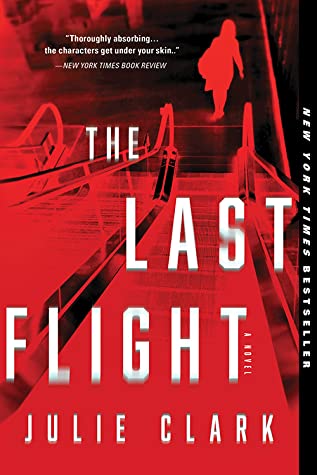
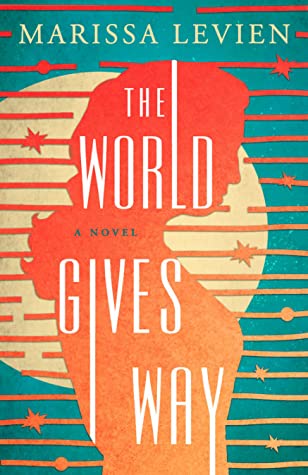
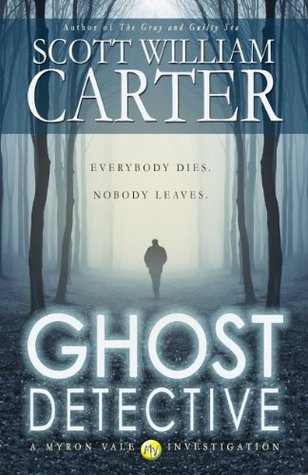
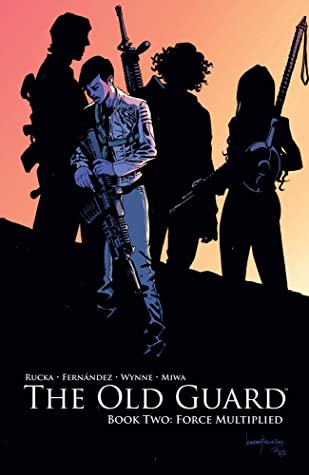
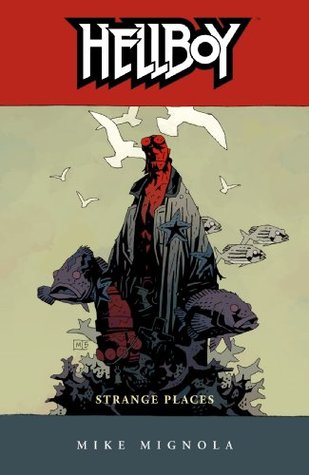
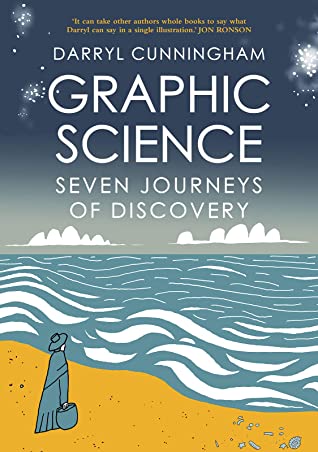
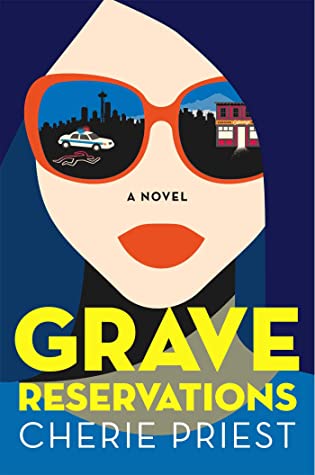
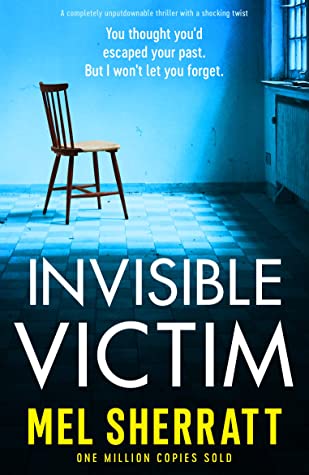
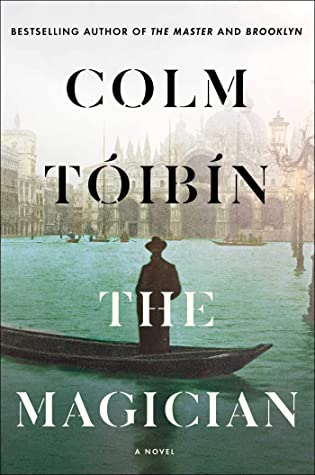
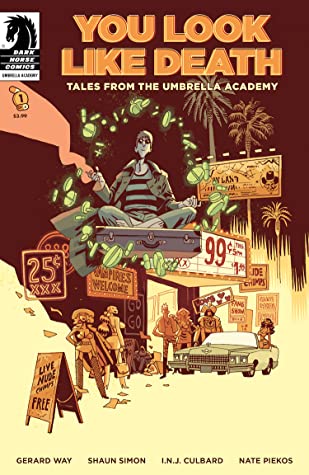
 RSS Feed
RSS Feed
